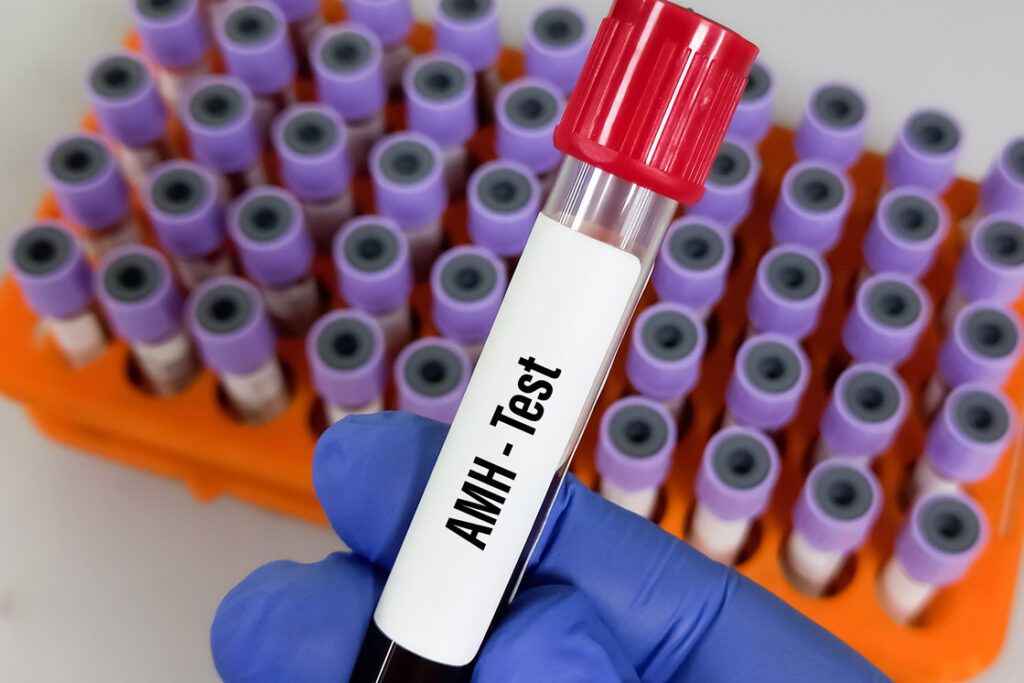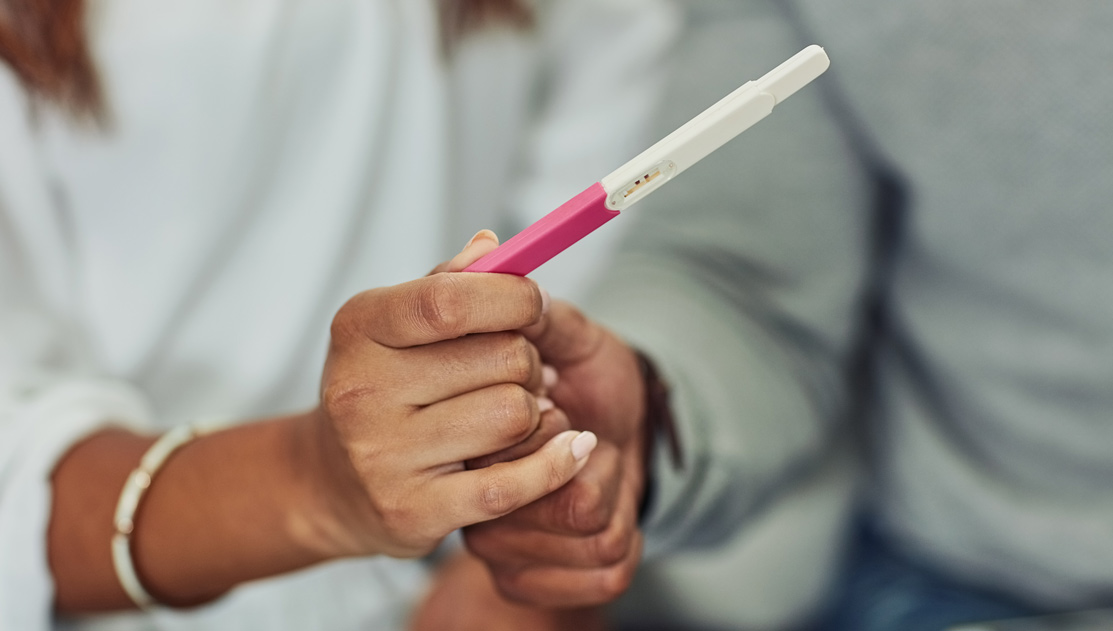If you’re trying for a baby or soon will be, chances are you’ve heard all kinds of fertility terms that can leave you feeling confused and overwhelmed: What is LH, what is AMH, what does any of this mean?
Well, Anti-Mullerian Hormone (AMH) is one you definitely need to understand. This vital fertility hormone plays a central role in the process of making a baby and if you’ve been struggling to get pregnant or you’re aged 25+, it’s a good idea to get your AMH levels checked. But what is AMH and what effect does it have on fertility? What constitutes low AMH levels? What does AMH do in females anyway? Let’s break it down.
What is AMH? What does AMH do in females?
AMH (Anti-Mullerian Hormone) is an essential sex hormone, with varying functions according to age and whether you are male or female – but here we will discuss AMH’s role post-puberty in a woman’s fertility.
A female is born with all the eggs she will ever possess (usually around 1-2 million). From her first menstrual cycle to her last, a woman’s body rounds up a bunch of follicles (little fluid-filled sacs that contain and support an immature egg) that have the capacity to react to hormones, develop and ovulate. Usually, only one of those eggs will be ovulated in a month. Those eggs not selected for ovulation disintegrate and if no pregnancy occurs that month, the process repeats itself.
So what is AMH’s role here? AMH is a hormone released by the cells that surround the growing eggs in a woman’s ovaries (‘granulosa cells’). Inside the ovaries, AMH plays a key role in the initial stages of the growth of the follicles. Generally the more follicles you have, the more AMH can be secreted, and so measuring AMH levels from a blood sample is a key way for doctors to gain insight into the number of eggs you may have left in your ovaries (your ‘ovarian reserve’). In addition, AMH levels are used by IVF doctors to design any fertility treatment you may undergo, allowing them to tailor appropriate treatment for you.
What do high AMH and low AMH levels mean?
Low AMH levels may indicate a lower number of remaining eggs, and could signal that falling pregnant may be difficult. A high AMH level generally signals a greater number of remaining eggs, which may mean you will find it easier to get pregnant or produce eggs for fertilisation during fertility treatment.
However please note that AMH is only one part of a woman’s fertility puzzle – there are many other important factors. Also keep in mind that a very high AMH level could signal a disorder like Polycystic Ovarian Syndrome (PCOS).
Can I increase my AMH levels naturally?
AMH is a hormone, and the hormonal balance in the body is of course related to and affected by all-round health and wellbeing. A healthy lifestyle isn’t a one-way ticket to optimum AMH levels of course, and age is a big factor because AMH levels decline with age. But clearly, it never hurts and can only help to:
- Maintain a healthy BMI and weight
- Eat a nutrient-rich diet full of whole foods
- Exercise regularly
What about supplements? Well, there is some evidence to suggest that vitamin D may have a positive effect on AMH levels. For example, one placebo-controlled study attempting to analyse the effects of vitamin D on AMH levels in young women found that the group taking vitamin D supplements did indeed see an increase in their AMH levels. Another study on women with PCOS (remember, women with PCOS often have overly high levels of AMH) found that vitamin D appeared to lower AMH levels. Hence both studies appear to support the hypothesis that ‘Vit D’s positive effects on the fertility of women may involve the regulation of ovarian AMH levels.’ So, while there are never any guarantees, it may be worth looking into vitamin D supplementation, particularly if blood tests reveal you are deficient in it. There are other supplements that some claim may increase AMH production, but evidence is as yet quite limited. In any case, if you wish to try any supplement, always check with your doctor that you don’t have any contraindications and that they are safe to try.
What is a normal AMH level?
In adult women AMH declines with age, so a ‘normal AMH level’ can only be considered normal for the age you are. So actually when measuring AMH levels it helps to think in terms of your remaining ‘ovarian fertility potential’.
However, AMH levels are not the fertility be all and end all. It can be hazardous to look at them out of context. Dr Anu Chawla, Fertility Consultant at The Fertility and Gynaecology Academy team cautions: “While we may speak in terms of ‘ovarian fertility potential’ indications from AMH testing, a lower number of remaining eggs does not automatically mean that the quality of the remaining eggs is not good. Plus, ovarian reserve is only one aspect of a woman’s capacity to conceive and carry a baby to term. There is so much more to this than: fertile/not fertile. It’s not a yes/no equation – it’s far more intricate and nuanced than that. Low AMH doesn’t necessarily mean you can’t get pregnant, and high AMH could signal a problem like PCOS. Indeed, an AMH test alone is insufficient for determining a true picture of your fertility, and ultimately at-home AMH tests can be confusing and ultimately misleading for women. Time is fertility, and the sooner you get a true picture of your fertility, the closer you will ultimately be. But for a true picture of your fertility, you need proper fertility screening. And since around 30% of all cases are down to male factor infertility, your partner should be tested too.”
Here at The Fertility and Gynaecology Academy, our fertility testing is second to none. We offer screening packages leaving no stone unturned, utilising the most state of the art equipment and internationally renowned experts. If there is a problem, we will aim to identify it and tell you in detail what can be done to address it. We consult with patients thoroughly, to understand their medical histories, the concerns they face, and their goals for a family.
To find out more about how we can help, call The Fertility & Gynaecology Academy now on 020 7224 1880 or email info@fertility-academy.co.uk.







